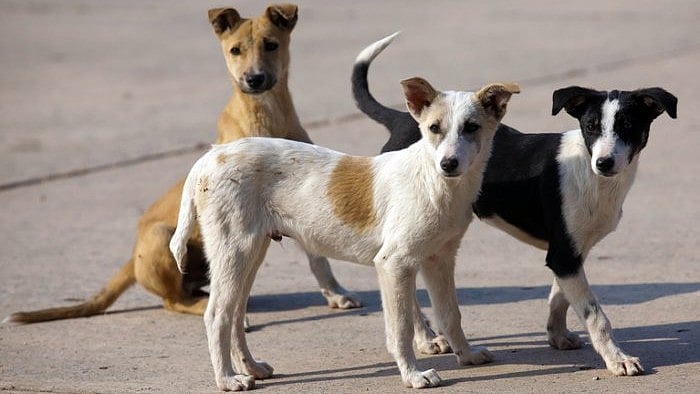
Representative image for dogs.
Credit: iStock Photo
Hyderabad: A central government-appointed inspection committee has identified systemic failures across multiple operational levels at Palamur BioSciences Pvt Ltd (PBPL), a Telangana-based animal testing laboratory.
The committee's report revealed that PBPL's approach to animal research prioritizes experimental output over animal welfare, regulatory compliance, and ethical responsibility.
Despite extensively using dogs, non-human primates, pigs, and other species in its research, PBPL has failed to implement even the most basic care standards mandated by the Committee for Control and Supervision of Experiments on Animals (CCSEA).
The inspection panel has recommended the immediate removal and rehabilitation of over 1,200 animals from Palamur Biosciences to prevent further pain and suffering. Additionally, the committee has called for a comprehensive review of the company's registration and breeding license status.
The inspection of Palamur Biosciences was conducted on June 11 and 12 following a whistle blower expose by PETA about alleged animal abuse at PBBL.
The inspection was conducted by a multidisciplinary team comprising representatives from the CCSEA, the Animal Welfare Board of India (AWBI), the Institutional Animal Ethics Committee (IAEC), and the Humane World for Animals India Foundation.
The inspection report pointed that the overall population of dogs far exceeds CCSEA-approved limits, with multiple species present without adequate disclosure or accurate record-keeping.
Critical documentation - including consolidated animal inventories, veterinary treatment records, and breeding logs - was consistently absent, incomplete, or untraceable.
The inspection revealed serious and widespread non-compliance with CCSEA regulations.
Key welfare violations included overcrowded and barren kennels, lack of environmental enrichment, feeding practices not aligned with the animals' physiological needs and body weight requirements, untrained and rough handling practices, and an alarming absence of protocols for pain management, sedation, and euthanasia.
Veterinary infrastructure was critically inadequate, with poor medical coverage, minimal drug availability, and no functioning isolation or quarantine facilities.
Particularly disturbing were the euthanasia practices observed that beagle dogs were euthanised using thiopentone sodium without prior sedation, and monkeys subjected to invasive surgical procedures involving implantation and daily wound care were physically restrained using gloves, with only analgesics administered post-procedure and dressing, and no sedatives provided.